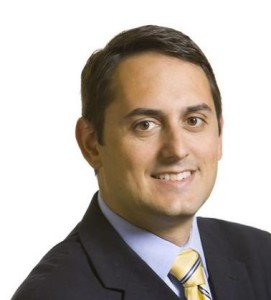 The Right Note is a weekly opinion column. The views and opinions expressed in the column are those of the author and do not necessarily reflect the views of ARLnow.com.
The Right Note is a weekly opinion column. The views and opinions expressed in the column are those of the author and do not necessarily reflect the views of ARLnow.com.
The week before Thanksgiving, County Board members Vihstadt and Garvey teamed up to question the closeout spending process. They asked the Board to at least delay the decisions on spending nearly $22 million in excess revenue till the new members were seated in January.
Kudos to Vihstadt for raising the issue as part of the closeout process and drawing more public attention to it. As Garvey noted, it would be “much better governance to make sure your spending goes through the budget process.”
Outgoing members Tejada and Hynes were not amused. Hynes claimed the public supported the Board’s plans for the year-end spending, despite having virtually no public input on the specifics of the just-released plan. Tejada called the Vihstadt proposal to pump the brakes on the spending measure “unreasonable and unneeded.”
If your goal is to spend tens of millions of dollars in a way that does not catch the attention of the public, then you agree with Tejada. If you never want to give taxpayers a break, then the 3-2 vote to forge ahead without additional public scrutiny makes a whole lot of sense.
The $22 million in year-end surplus revenue is just the tip of the iceberg in closeout spending and the need to shed more light on it. Arlington Public Schools ended up spending $25.6 million less than they budgeted for the previous fiscal year.
As part of the same meeting, the County Board considered budget guidance for the next fiscal year. Once again, the staff report raised the issue of a so-called budget gap, to the tune of around $15 million total between schools and the county budget.
In recent memory, Arlington has not faced a budget shortfall. There will be no budget gap next year either.
County Board members had just voted to spend tens of millions of dollars in excess revenues, just like they do every year. To allow for any pretense at the same meeting there will be a budget gap next year borders on ludicrous.
Despite claims to the contrary, the threat of a budget gap has nothing to do with conservative budgeting. It is put in play to give Board Members an excuse to once again force the taxpayers to pay more.
For the next four to five months of the annual budget process, the Board can talk about the budget gap. How they must make difficult choices. How they cannot lower taxes.
Unless Vihstadt and Garvey can convince one of their new colleagues to change the way the Board does business, we will be right back to this point a year from now. The Board will be spending the taxpayer-funded proceeds of another budget surplus and talking about the next budget gap.

